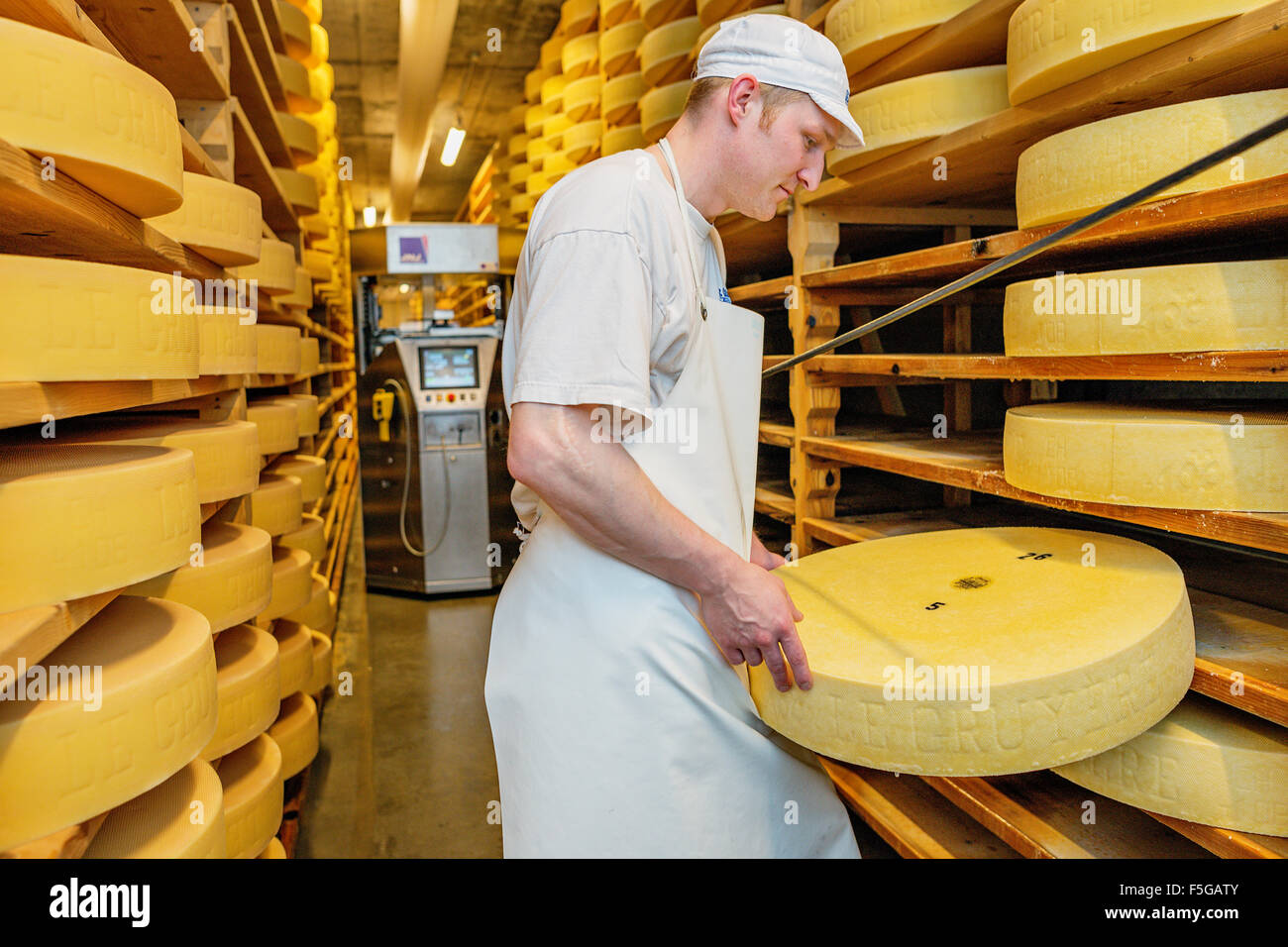Discover the most effective Cheese Makers Melbourne for Artisan Delights
Discover the most effective Cheese Makers Melbourne for Artisan Delights
Blog Article
An In-Depth Take A Look At Cheese Production: Components, Methods, and the Future of Craftsmen Cheeses
The elaborate procedure of cheese production is a remarkable merging of art and science, where top notch milk, rennet, and certain microbial societies offer as foundational components. As the sector progressively focuses on sustainability and transparency, the future of artisan cheeses guarantees to reflect both heritage and progression.
Secret Components in Cheese Manufacturing
A variety of essential ingredients play an essential duty in cheese production, each adding to the end product's taste, texture, and character. The main active ingredient in cheese is milk, which can come from different resources, including cows, goats, and lamb - cheese makers melbourne. The kind of milk used substantially affects celebrity's preference and uniformity; for instance, cow's milk usually produces creamier cheeses, while goat's milk frequently produces tasty varieties
One more crucial component is rennet, an enzyme used to curdle the milk, separating it into curds and whey. The resource of rennet can be animal, vegetable, or microbial, each passing on unique qualities to the cheese. Societies, containing specific stress of germs, are likewise essential to the cheese-making procedure. They ferment lactose right into lactic acid, aiding in taste advancement and structure.
Salt not just improves the taste however likewise acts as a preservative, preventing the growth of unwanted bacteria. In addition, numerous flavoring agents, such as herbs, flavors, or perhaps smoked wood, can be included in produce one-of-a-kind artisanal cheeses. Together, these active ingredients develop the structure of cheese manufacturing, setting the stage for varied and abundant cheese varieties.
Typical Cheese-Making Techniques
Using typical cheese-making techniques, craftsmens around the globe protect time-honored techniques that have been given with generations. These strategies often highlight making use of high-quality, in your area sourced milk, which is main to the distinct flavors and textures of artisanal cheeses. The procedure typically starts with the careful home heating of milk, complied with by the enhancement of societies and rennet to help with coagulation.
Once the curds develop, they are reduced, permitting whey to drain pipes, an important action that influences moisture content and texture. Salting is a crucial aspect of this process, improving flavor while likewise acting as a preservative.
Aging, or affinage, is another critical component, throughout which cheeses establish their characteristic scents and preferences. Craftsmens may use specific maturing settings, utilizing moisture and temperature controls to fine-tune the cheese's account. The dedication to these traditional approaches not only sustains neighborhood economic situations yet additionally contributes to the rich variety of cheese ranges located around the world, commemorating cultural heritage and artisanal craftsmanship.
Modern Innovations in Cheese Manufacturing
Exactly how have technological advancements changed cheese production in current years? The assimilation of modern technology has reinvented both the performance and quality of cheese production.
Additionally, developments in microbiology have made it possible for cheesemakers to choose certain bacterial cultures and enzymes, maximizing taste accounts and enhancing shelf life. Using sensor technology for checking fermentation problems has likewise become prevalent, enabling real-time adjustments to maintain optimum settings for cheese aging.

These advancements not just boost the top quality and sustainability of cheese manufacturing but additionally equip artisan producers to maintain standard flavors while welcoming contemporary efficiency. As click here for more modern technology continues to advance, the future of cheese manufacturing looks encouraging, mixing custom with innovation.
The Duty of Terroir in Cheese
In the realm of cheese manufacturing, terroir plays an essential role in specifying the distinct attributes of different cheeses. Terroir, a French term traditionally connected with red wine, incorporates the ecological variables that influence farming products, consisting of dirt structure, climate, and neighborhood flora and animals. In cheese-making, the unique features of the region where the milk is sourced can convey certain flavors and appearances to the final item.
For example, the grazing conditions of dairy products pets dramatically affect the milk's structure, affected by the kinds of turfs and natural herbs offered in a certain locale. This differs not just in between countries yet also in between areas within the same country. Furthermore, the microbial areas existing in the atmosphere add to the fermentation processes, resulting in varied accounts in flavor and aroma.
Cheeses such as Roquefort, Parmigiano-Reggiano, and Cheddar exhibit exactly how terroir can form their identities, making them distinctive and frequently safeguarded by geographical signs. As manufacturers increasingly acknowledge the relevance of terroir, there is a growing focus on sourcing neighborhood ingredients and maintaining traditional methods, making sure that each cheese really shows its origin.

Future Patterns in Craftsmen Cheeses
A remarkable change is occurring in the artisan cheese industry, driven by developing customer preferences and technological innovations. Progressively, customers are moving toward one-of-a-kind, top notch products that highlight both sustainability and local sourcing - cheese for sale online. This pattern is prompting artisan cheesemakers to introduce, concentrating on small-batch manufacturing and the use of typical techniques while incorporating contemporary technology to improve quality and security
Additionally, there is a growing rate of interest in plant-based and alternative dairy items, pressing conventional cheesemakers to check out brand-new avenues, such as cashew or almond-based cheeses. This change not just caters to dietary constraints but also lines up with ecological problems concerning pet farming.
Additionally, openness in sourcing and production processes is coming to be paramount. Consumers are much more enlightened and demand traceability, prompting manufacturers to take on clearer labeling practices and engage in storytelling that highlights their techniques and values.
Final Thought
In verdict, the intricate procedure of cheese manufacturing combines standard strategies visit this page with modern advancements, causing a varied selection of tastes and appearances. The focus on top notch active ingredients and the impact of terroir emphasize the virtuosity associated with cheese manufacturing. As the sector advances, a concentrate on sustainability and openness will likely form the future of artisan cheeses, accommodating a significantly critical customer base that values credibility and workmanship in milk items.
Report this page